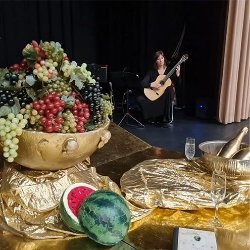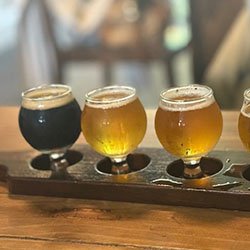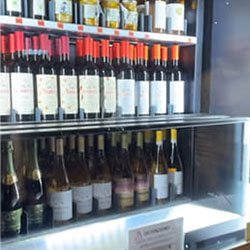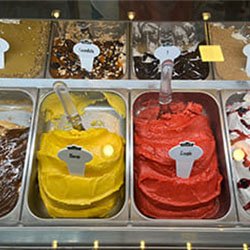It’s populated by over 1.5 million people and many wild animal species inhabit this region as well, among them: foxes, wolves, deer, wild boars, squirrels, barn owls and many more. Animals have always been protected in our Regional Parks and their presence has always been cherished.
To start, it’s worth mentioning that there is a group of wild horses living in the Aveto Regional Natural Park. This herd is composed of about forty animals, heirs of those horses who belonged to a breeder many years ago and they now live free between pastures and beech woods, some of them without any contact with men. The Aveto park organizes special horse-watching excursions to observe the wild horses and see how they live.
The rebel cows, as they are called, on the other hand, are a herd of cows living wild in the woods between the villages of Mele and Masone, in the province of Genoa. At the end of the 90s the farm of Mele that managed the cattle could no longer provide for them and so, gradually, they assumed wild behavior, splitting into two groups, and splitting their territories among the Alta Via of the Ligurian Mountains, the woods of Mele and Masone, and the Apennine ridge in the hinterland around nearby Savona city, near the Regional Park of the mountain area of Mount Beigua. The two small herds have damaged vegetable gardens, crops and orchards but they have become so popular and beloved that a short film was also made about their story.

Mount Beigua is inhabited by wolves and other species
The most famous among the rare animals of Liguria, is certainly the wolf. It had disappeared due to indiscriminate hunting in the first half of the 1900 but it returned to our mountains in a completely autonomous way, with a completely natural phenomenon called dispersion, that is, the regular cycle of reproduction brought some of these animals back to the region. Now several families of wolves are found in the Antola mountain chain, in Val D'Aveto (Aveto Valley) and in the Ligurian Alps, not without problems, avoided with the use of fences, guard dogs and appropriate devices.
Another animal which lives in our region is the biancone, a large diurnal bird of prey with variable plumage and a white bottom which gives it the name biancone (bianco means white in Italian). At the beginning of the spring it migrates from West Africa, through the Strait of Gibraltar to reproduce in the Ligurian woods, above all around Mount Beigua.
Rare to find, but famous for its beauty, the yellow-bellied toad has a yellow and black belly that defend it from predators. He recently was at the center of a controversy due to regional funding aimed at its protection. Recently the Park of Monte Marcello-Magra has been awarded by the WWF for its project to promote biodiversity by saving the yellow-bellied frog from extinction.
Speaking about more common animals, every year in Liguria, we organize the Festa del Canto del Gallo (Festival of the Singing Rooster).
It’s held at a Fair in San Bartolomeo al Mare, not far from Genoa, a festival in which local and national participants gather to judge which rooster has the most beautiful ‘cock-a-doodle-doo.’ There are already many roosters in the golden book of winners of the event, from Roby the fluff to Asterix, all famous roosters that is!
Not far from the city of Genoa, in Valle Scrivia, donkeys go to school!
In fact these donkeys (in Genoese aŝe), from the non-profit and no-kill shelter called Paradiso Onlus, have thousands of followers on social networks and have been used to encourage children with disabilities and learning problems to do better in school as part of a project in which the donkey accompanies the young visitors on trekking or hiking trips. This project was born to help children learn by using ‘pet therapy’ and to fund the shelter. It came as a joke from the common saying we have in Italian that “bad students are donkeys” to say that bad students are dunces and if you have read the famous Italian fairytale, Pinocchio, you may remember that he was getting transformed into a donkey when he played hookie from school.

Donkeys from Paradiso Onlus shelter






























































